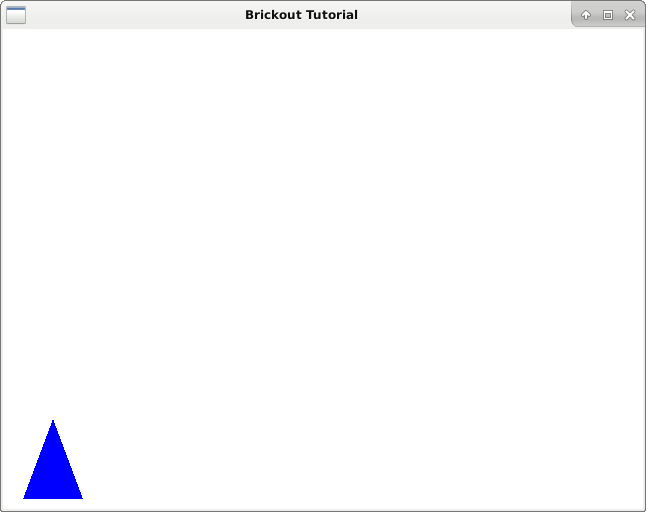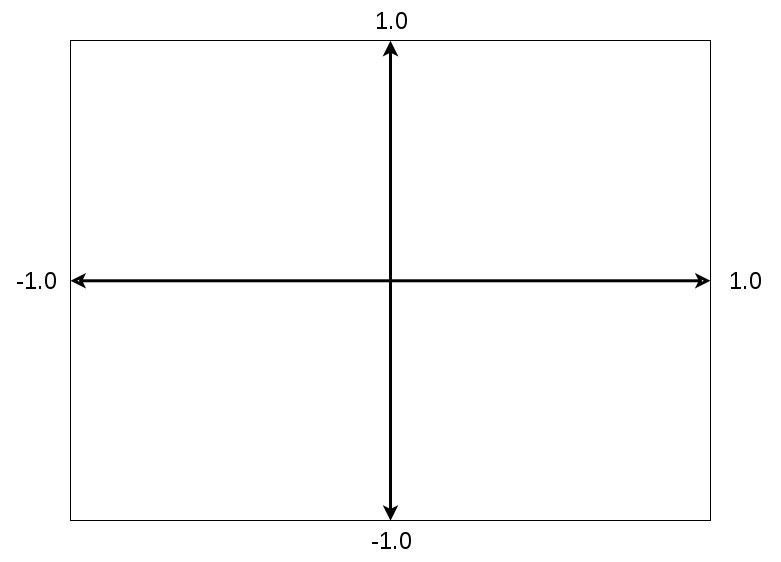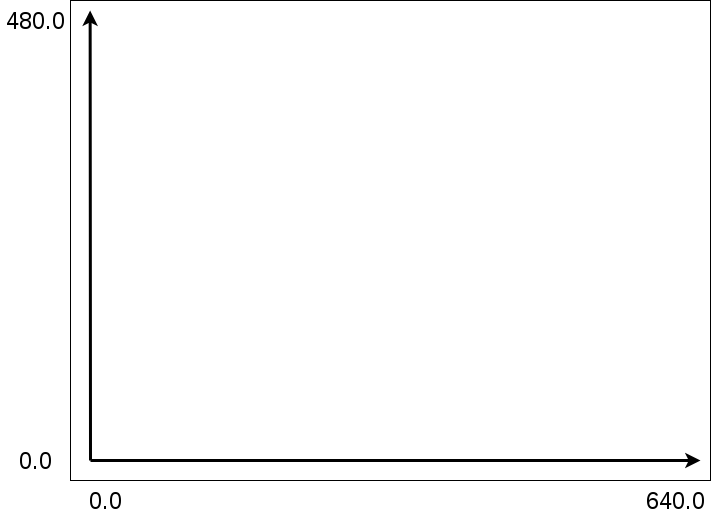#include <epoxy/gl.h>
#include <epoxy/glx.h>
#include <gtk/gtk.h>
#include "DashGL/dashgl.h"
#define WIDTH 640.0f
#define HEIGHT 480.0f
static void on_realize(GtkGLArea *area);
static void on_render(GtkGLArea *area, GdkGLContext *context);
GLuint program;
GLuint vao, vbo_triangle;
GLint attribute_coord2d;
int main(int argc, char *argv[]) {
GtkWidget *window;
GtkWidget *glArea;
gtk_init(&argc, &argv);
// Initialize Window
window = gtk_window_new(GTK_WINDOW_TOPLEVEL);
gtk_window_set_title(GTK_WINDOW(window), "Brickout Tutorial");
gtk_window_set_position(GTK_WINDOW(window), GTK_WIN_POS_CENTER);
gtk_window_set_default_size(GTK_WINDOW(window), 640, 480);
gtk_window_set_type_hint(GTK_WINDOW(window), GDK_WINDOW_TYPE_HINT_UTILITY);
g_signal_connect(window, "destroy", G_CALLBACK(gtk_main_quit), NULL);
// Initialize GTK GL Area
glArea = gtk_gl_area_new();
gtk_widget_set_vexpand(glArea, TRUE);
gtk_widget_set_hexpand(glArea, TRUE);
g_signal_connect(glArea, "realize", G_CALLBACK(on_realize), NULL);
g_signal_connect(glArea, "render", G_CALLBACK(on_render), NULL);
gtk_container_add(GTK_CONTAINER(window), glArea);
// Show widgets
gtk_widget_show_all(window);
gtk_main();
return 0;
}
static void on_realize(GtkGLArea *area) {
// Debug Message
g_print("on realize\n");
gtk_gl_area_make_current(area);
if(gtk_gl_area_get_error(area) != NULL) {
fprintf(stderr, "Unknown error\n");
return;
}
const GLubyte *renderer = glGetString(GL_RENDER);
const GLubyte *version = glGetString(GL_VERSION);
const GLubyte *shader = glGetString(GL_SHADING_LANGUAGE_VERSION);
printf("Shader %s\n", shader);
printf("Renderer: %s\n", renderer);
printf("OpenGL version supported %s\n", version);
glClearColor(1.0f, 1.0f, 1.0f, 1.0f);
glGenVertexArrays(1, &vao);
glBindVertexArray(vao);
GLfloat triangle_vertices[] = {
20.0, 10.0,
50.0, 90.0,
80.0, 10.0
};
glGenBuffers(1, &vbo_triangle);
glBindBuffer(GL_ARRAY_BUFFER, vbo_triangle);
glBufferData(
GL_ARRAY_BUFFER,
sizeof(triangle_vertices),
triangle_vertices,
GL_STATIC_DRAW
);
glVertexAttribPointer(0, 2, GL_FLOAT, GL_FALSE, 0, 0);
glEnableVertexAttribArray(0);
glDisableVertexAttribArray(0);
const char *vs = "shader/vertex.glsl";
const char *fs = "shader/fragment.glsl";
program = shader_load_program(vs, fs);
const char *attribute_name = "coord2d";
attribute_coord2d = glGetAttribLocation(program, attribute_name);
if(attribute_coord2d == -1) {
fprintf(stderr, "Could not bind attribute %s\n", attribute_name);
return;
}
const char *uniform_name = "orthograph";
GLint uniform_ortho = glGetUniformLocation(program, uniform_name);
if(uniform_ortho == -1) {
fprintf(stderr, "Could not bind uniform %s\n", uniform_name);
return;
}
glUseProgram(program);
mat4 orthograph;
mat4_orthagonal(WIDTH, HEIGHT, orthograph);
glUniformMatrix4fv(uniform_ortho, 1, GL_FALSE, orthograph);
}
static void on_render(GtkGLArea *area, GdkGLContext *context) {
g_print("on render\n");
glClear(GL_COLOR_BUFFER_BIT | GL_DEPTH_BUFFER_BIT);
glBindVertexArray(vao);
glEnableVertexAttribArray(attribute_coord2d);
glBindBuffer(GL_ARRAY_BUFFER, vbo_triangle);
glVertexAttribPointer(
attribute_coord2d,
2,
GL_FLOAT,
GL_FALSE,
0,
0
);
glDrawArrays(GL_TRIANGLES, 0, 3);
glDisableVertexAttribArray(attribute_coord2d);
}


